- Academia
- Advocacy work
- Business
- Civil service
- Diplomacy
- International affairs
- Law
- Nonprofit organizations
- Public administration
- Public office
- Public policy
Political Science
- Bachelor of Arts
- Minor
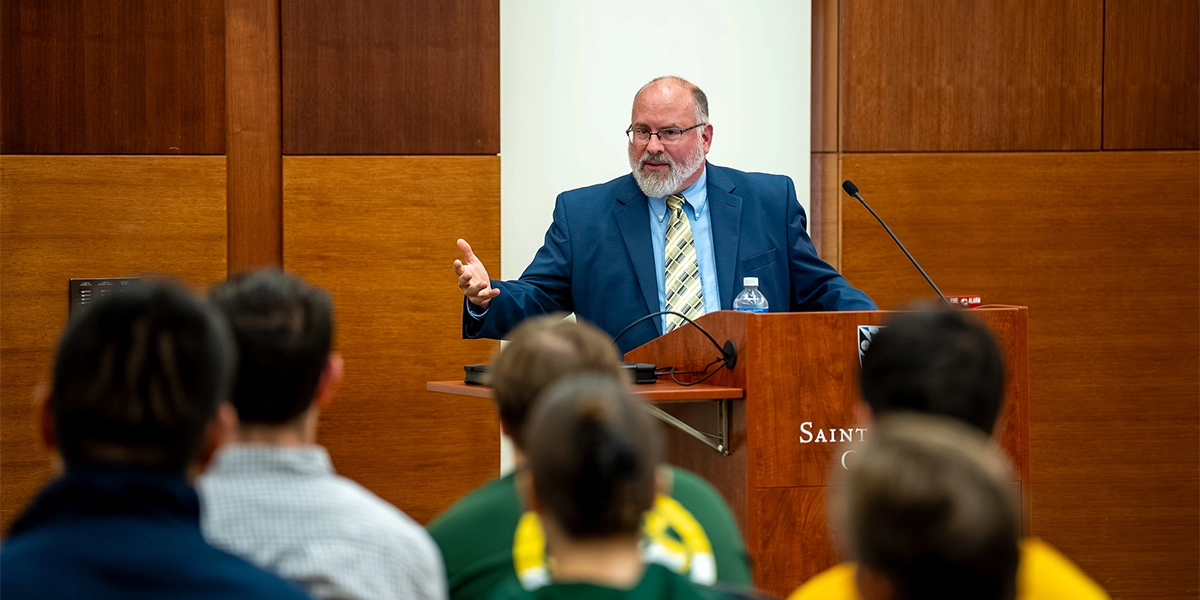
-
In This Section
Explore Big Ideas. Build Real Skills. Make a Difference.
The political science program approaches the study of politics as both philosophical reflection and analytical art. Through the study of ancient and modern sources, students will examine the ideas and events that have influenced the formation of political principles, government organization, characteristics of citizenship, and public policy. Our program seeks to help students understand the contemporary political environment, to address public policy issues and to contribute intellectually and practically to the political challenges of our time. The political science program provides an ideal foundation for graduate study, law school, and successful careers in politics, public policy, law, and related fields. Many students choose to double-major or add a minor in areas like public policy, economics, criminology, law, and society, or legal studies, along with other programs in the School of Arts, Humanities, and Social Sciences.
Undergraduate Programs
Undergraduate Admission
Phone:
800-782-5549
Ext. 2500
Email:
admission@stvincent.edu
Program Highlights
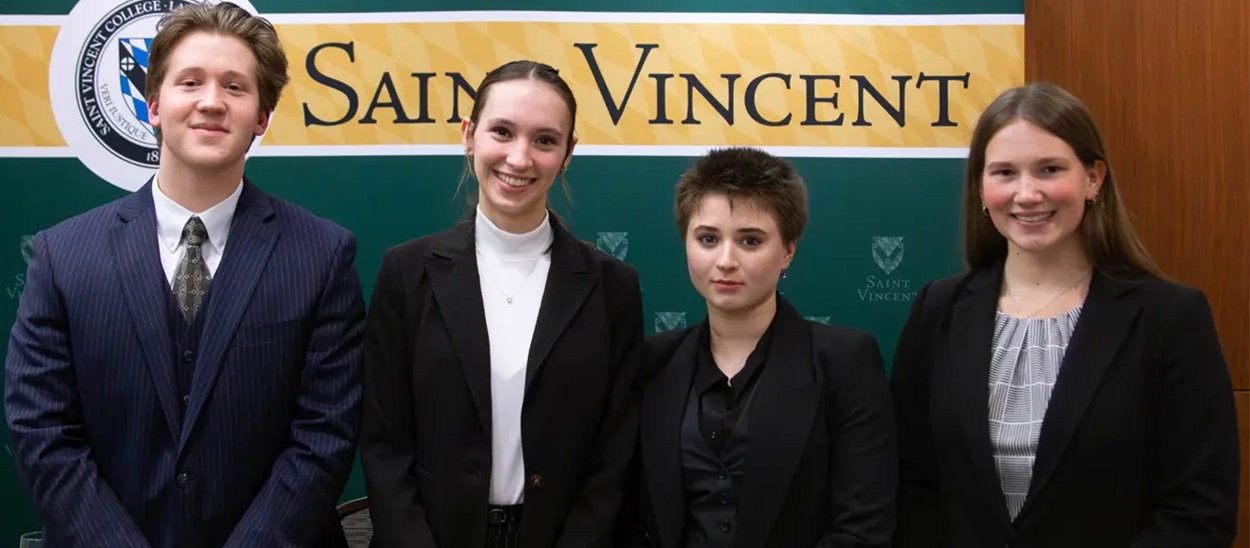
Get Involved, Make an Impact
You can participate in a wide range of extracurricular opportunities, including our competitive Moot Court and Mock Trial teams, campus radio, College Democrats and Republicans, and other student organizations.
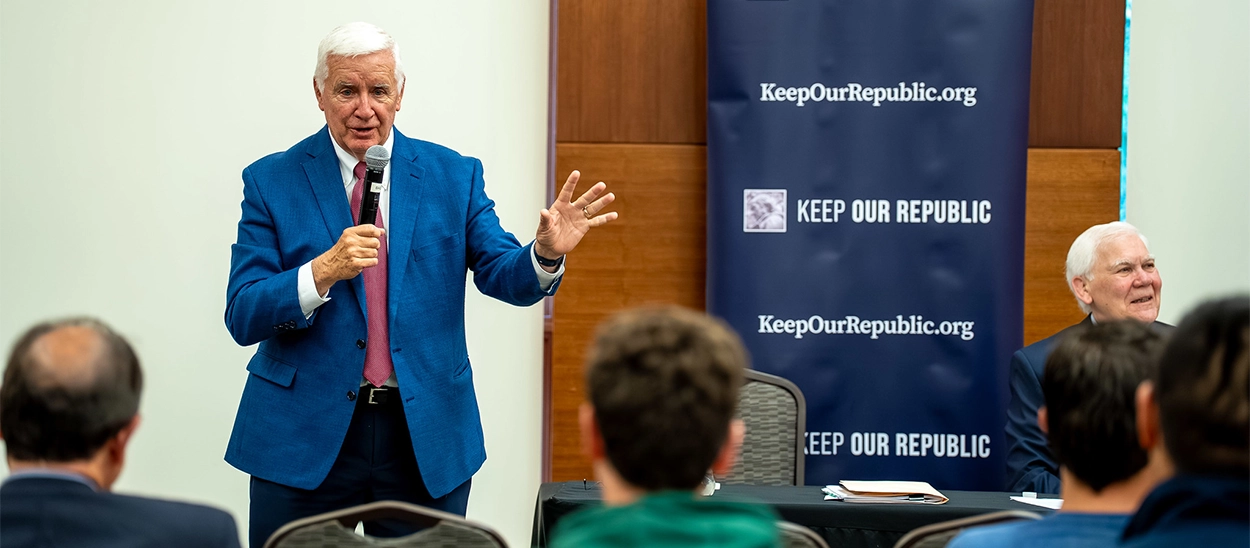
Engage with Experts
The political science department regularly brings renowned speakers to campus, hosts academic conferences, and sponsors reading groups, movie nights, trips, and other enriching experiences just for you.
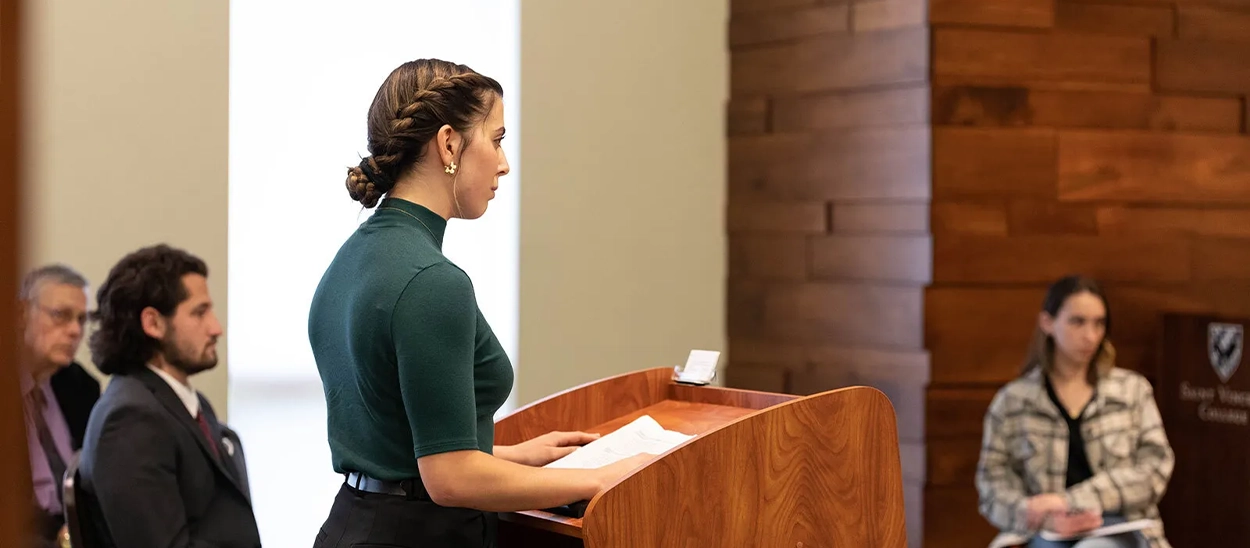
Plan Your Future with Confidence
We’re here to help you prepare for graduate school and law school, including support for admissions exams and personalized guidance every step of the way. Our pre-law program prepares students who are specifically pursuing a degree in law. In recent years, 100% of SVC political science majors have enjoyed placement in law school, graduate school, or employment after graduation.
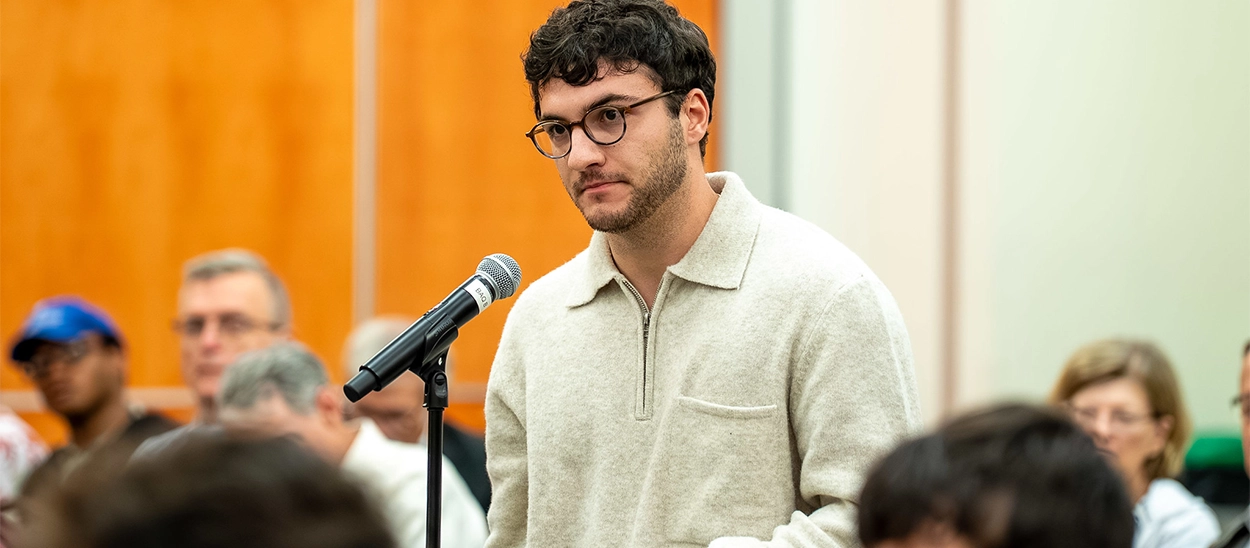
Gain Real World Experience
You’ll have the chance to take part in competitive internships in legal, judicial, and political fields at the state, local, and national levels. You can also join prestigious colloquia, conferences, and research fellowships both on and off campus.
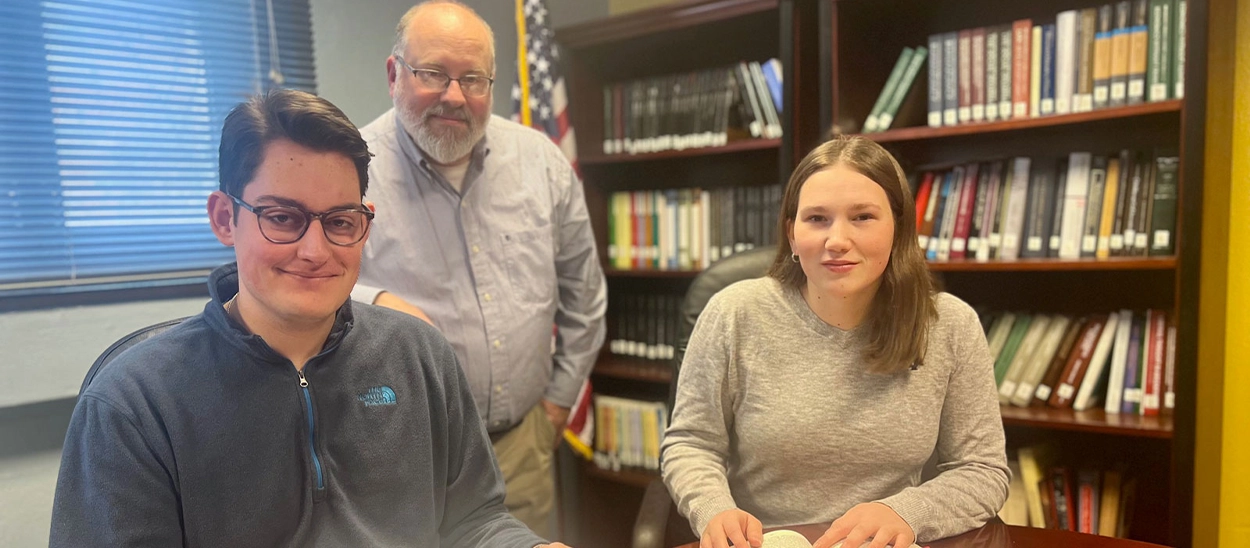
Research Opportunities
Each year, the SVC Department of Political Science sponsors the George Washington Fellows Program, offering students a year-long opportunity to explore key questions of American citizenship through guided research and discussion. Fellows receive mentorship, a $1,000 honorarium, and often attend academic conferences. Past projects have examined topics like religious freedom and judicial statesmanship.
Careers After Saint Vincent
Students graduating with a degree in political science will be prepared both to discuss contemporary political issues and analyze them in the context of their underlying philosophical and fundamental ideas. These skills lay the ideal foundation for successful careers in various fields.
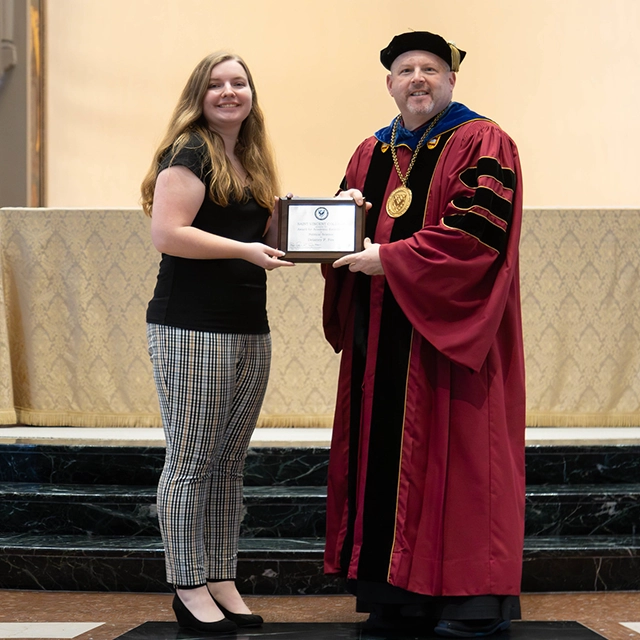
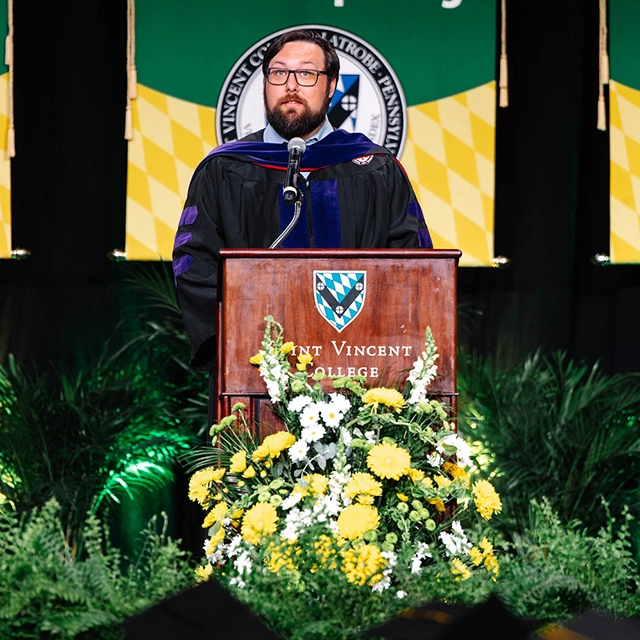
Our students have secured jobs and internships at a variety of companies in their field and enrolled in prestigious graduate schools such as:
- Citizens Bank
- Husch Blackwell
- Litchfield Cavo
- Somerset Trust Company
- U.S.District Court, Western District of Pennsylvania
- U.S. House of Representatives (Legal counsel)
- Georgetown University
- Harvard University
- Baylor University
- Catholic University of America
- Duquesne University
- University of Pittsburgh
Student Success Stories
-

Kaitlin Repp, C’22
“What is so exceptional about the political science program is that all of the faculty members are personally invested in the growth of every student. Off campus, you will find students eagerly gathering at a local coffee shop to attend their weekly reading groups hosted with other professors on an assortment of topics from Flannery O’Connor’s short stories to Plato’s Apology. Every few weeks they invite prestigious scholars from across the country to give interesting lectures and answer student questions. The political science program provided an education beyond the textbook, one where primary sources are used to critically think about subjects like political philosophy, law, and American institutions.”
Policy Analyst
Republican Caucus on the House Health Committee -
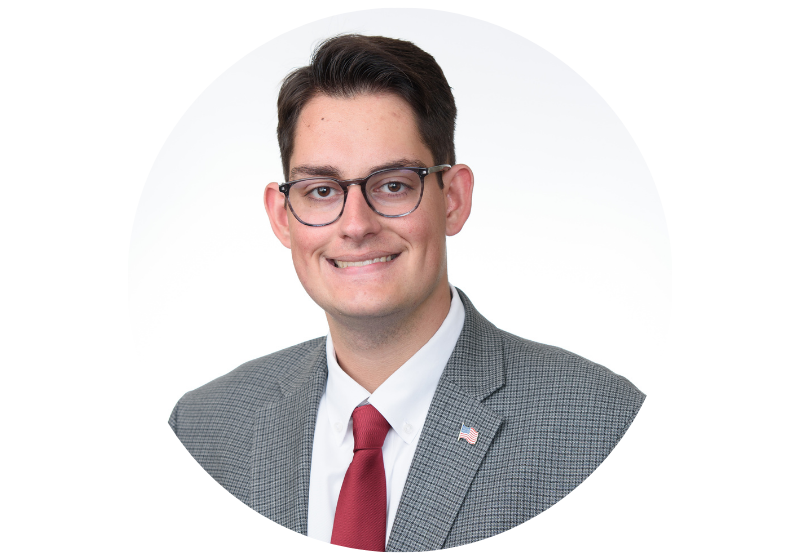
Jacob Mock, C’25
“I chose Saint Vincent’s political science program because I saw how important it was to the professors that we learn about political science from classic texts. We're reading a lot of Plato and Aristotle and diving deep into the Federalist Papers. I compared what we were doing with what my other friends from bigger schools were doing, and it was not the same. I realized how important it is to understand the origins of politics and be able to have informed discussions about them.”
Law student at University of Toledo College of Law,
Former SVC George Washington Fellow
-
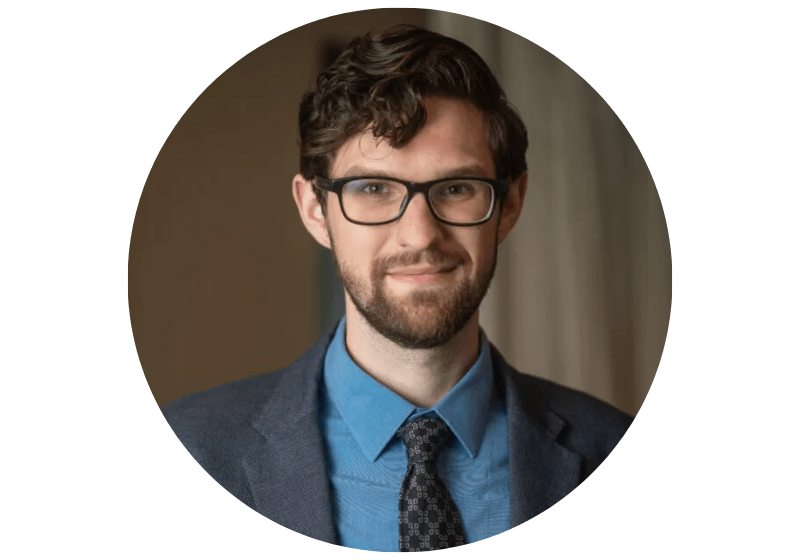
Aaron Kushner, C’13
“The most memorable aspect of the political science program at SVC is how the department, curriculum, events, and community are all intentionally designed to care for and mentor students. As a recent convert in college, I found it remarkable that professors—serious about their faith—could also thoughtfully engage with politics and political ideas. Over time, I’ve come to appreciate even more how dedicated the political science faculty at Saint Vincent are to building the character of their students. Without that positive experience, I would not have pursued the career I have today.”
Assistant Professor, The Civics School
Arizona State University
Curriculum Requirements
-
Major - Required Courses
- PS 100: Introduction to American Government
- PS 205: Classical Political Thought
- PS 210: Modern Political Thought
- PS 335: The U.S. Presidency
- PS 345: Congress and Public Policy
- PS 395: What is Political Science?
- PS 480: Senior Capstone in Political Science
- PS 242 or PS 244: International Politics or Comparative Politics
- PS 295 or PS 298: American Political Thought I or American Political Thought II
- PS 368 or PS 369: Constitutional Law (National Powers) or Constitutional Law (Civil Liberties)
Plus,
- 3 Elective courses in Political Science (9 credit hours)
-
Minor - Required Courses
- PS 100: Introduction to American Government
- Plus, complete an additional 15 credit hours in political science except PS 470, 471, 550 (Repeatable courses will only count once toward completion of the minor.)
-
Key Courses
Introduction to American Government: In this course, you'll explore how the U.S. government was created and how it works today. You'll explore the ideas, speeches, and actions of the people who shaped the Constitution, and see how those ideas connect to big themes in Western political thought. It’s a great way to understand the foundations of American democracy and how they still influence our world.
International Politics: This course explores international politics by drawing on classic and influential texts from political thought and the American tradition. You'll look at big questions like: What is the purpose of international politics? How do nations shape their foreign policies? And how does human nature influence global affairs? It’s a deep dive into the ideas behind the headlines.Constitutional Law: Civil Liberties: In this course, you'll analyze key federal court decisions related to the Bill of Rights, with a special focus on U.S. Supreme Court rulings. You'll explore First Amendment issues like free speech, freedom of religion, and freedom of association, along with 14th Amendment topics such as equal opportunity, voting rights, and civil rights legislation. You'll also examine how federal policies and politics shape these areas of law.
What is Political Science?: In this class, you'll consider the purpose and current state of political science as an academic discipline. You will read texts that provide meaningful analyses of political theory, American politics, constitutional law, international politics, comparative politics, and other subfields of political science. The course will also prepare you to make your own contributions to the study of politics.
Our Faculty

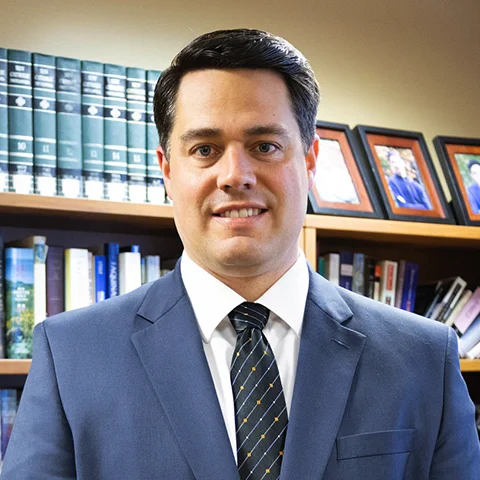
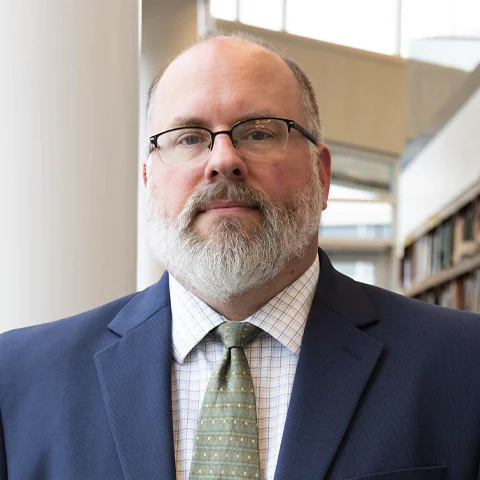
Undergraduate Programs
Undergraduate Admission
Phone:
800-782-5549
Ext. 2500
Email:
admission@stvincent.edu
